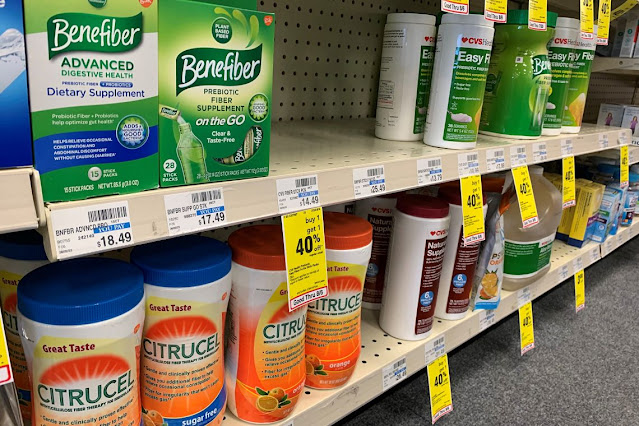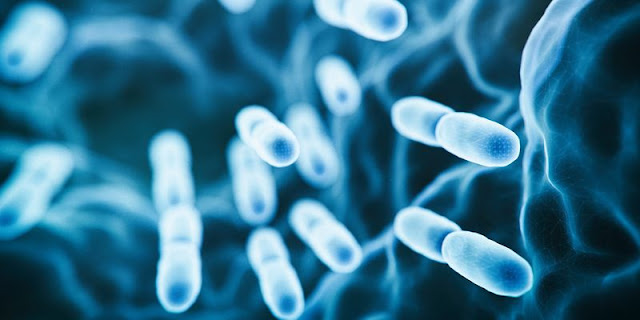It doesn't matter much which fiber you choose -- just get more fiber!
It might be daunting for customers to choose from the vast selection of dietary fiber supplements in the pharmacy or grocery aisle. They also offer a variety of health claims without getting FDA permission or evaluation. How then can you determine which supplement is effective and ideal for you?
People who had been eating the least amount of fiber prior to the study showed the greatest benefit from supplements, regardless of which ones they consumed, according to a rigorous analysis of the gut microbes of study participants who were fed three different kinds of supplements in different sequences.
According to research author and assistant professor of molecular genetics and microbiology at Duke University Lawrence David, "The persons who responded the best had been consuming the least fiber to start with."
Dietary fiber has advantages beyond the advertised easier defecation. Fermentable fiber, which is composed of dietary carbohydrates that some bacteria can digest but which the human gut cannot, is a crucial source of nutrients for the health of your gut flora.
Former PhD student in the David lab and co-author of two recent papers on fiber, Zack Holmes, claimed that "we've evolved to depend on nutrients that our microbiomes produce for us." However, due to recent dietary changes away from fiber-rich foods, we are no longer providing our bacteria with what they require.
A high-fiber diet encourages your gut flora to create more short-chain fatty acids, which shield you from conditions like obesity and colorectal cancer. And in particular, they make more of the fatty acid butyrate, which serves as the actual fuel for the intestinal cells. Butyrate has been demonstrated to increase the host's intestines' resistance to infections, reduce inflammation, and produce happier, healthier intestinal lining cells.
David's research group was interested in whether it might be necessary to "personalize" fiber supplements to different people in light of the wide range of supplements on the market. Different fermentable fibers have been shown to have different effects on the production of short-chain fatty acids depending on the individual.
"Between the fiber supplements we examined, we didn't see many differences. David gave a tour of his gleaming new lab in the MSRB III building, which features an array of eight "artificial guts" and an unique "scientific toilet" for collecting samples "fermenters for cultivating healthy gut flora outside of the body.
Whichever test supplement you choose, it seems your microbiota will reward you by producing more butyrate, according to David.
The daily recommended quantity of fiber is only consumed by the average American adult at 20 to 40 percent of that amount, which is thought to be the main contributor to many of our prevalent health problems, such as obesity, cardiovascular disease, digestive problems, and colon cancer. Convenient fiber supplements that can boost the formation of short-chain fatty acids have been developed as an alternative to being completely vegetarian or eating pounds of kale every day.
The Duke studies looked at inulin, dextrin (Benefiber), and galactooligosaccharides (GOS), which are sold under the brand name Bimuno. The 28 participants were divided into three groups and given each of the three supplements for one week in a different order. There was a week break between supplements to allow individuals' intestines to recover to their pre-supplement states.
The sort of supplement didn't really matter, and those who had been eating the most fiber previously exhibited the least change in their microbiomes. This is likely because they were already supporting a more ideal population of gut bacteria, according to David.
Contrarily, regardless of which supplement was taken, those who had been ingesting the least fiber saw the biggest increase in butyrate.
The gut microbes responded to a new addition of fiber within a day, significantly altering the populations of bugs present in the gut and changing which of their genes they were using to digest food, according to a second study the David lab conducted with funding from the U.S. Office of Naval Research.
The researchers discovered that the gut microorganisms were primed by the first dosage to absorb fiber and swiftly digested it on the second dose using their artificial gut fermenters.
The primary author of the second research, graduate student Jeffrey Letourneau, called the results "encouraging." "It probably isn't worth it to worry too much about what sort of fiber to add if you don't consume a lot of fiber. Finding something that serves you well long-term is all that matters."
Holmes continued, "It doesn't have to be a supplement either. "It may just be a diet high in fiber. People who ate a lot of fiber—found in foods like citrus, leafy greens, and beans—already had highly healthy microbiomes."
Materials provided by Duke University. Original written by Karl Leif Bates. Note: Content may be edited for style and length.




Comments
Post a Comment